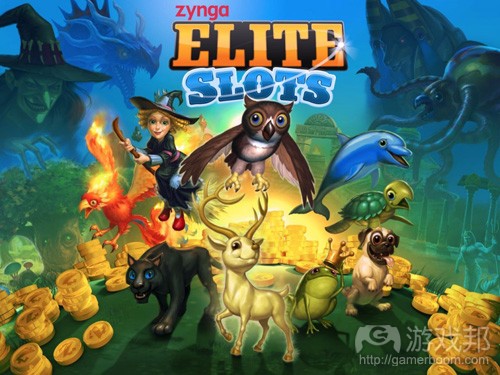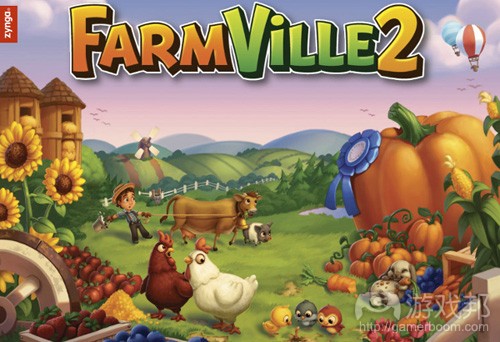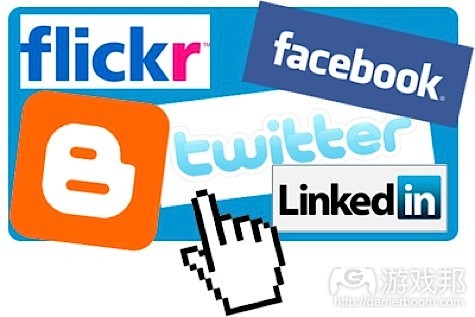每日观察:关注Zynga新博彩游戏《Zynga Elite Slots》(12.13)
1)据insidesocialgames报道,Zynga日前宣布将推出第五款博彩游戏《Zynga Elite Slots》。这款融合了社交博彩与角色扮演游戏元素的作品目前提供了6个主题的老虎机游戏:Enchanted Forest(奇幻主题)、Aurora Dreams(北极)、Treasure of Anubis(古埃及)、Pet Park、House of Fangs(僵尸)以及High Noon(西部荒原)。
该游戏设计总监Josh Gause(曾参与开发《Bingo Blitz》)表示,《Zynga Elite Slots》即将入驻Facebook,但目前尚无推出跨平台游戏的计划。
2)据games.com报道,Zynga移动高级副总裁Travis Boatman在最近采访中表示,Zynga与Facebook解除原来的特殊战略合作关系并不会对公司造成消极影响的原因在于,有许多人想玩游戏并与他人进行社交互动的时候,并一定想使用Facebook。
Facebook与Zynga之间的独家协议在2013年初终止后,前者就有可能与其他开发商签署类似的特殊协议,那么Zynga又该如何应对这种情况?Boatman对此表示,Zynga与Facebook之间的合作关系一直很好,但让非Facebook用户之间建立联系,对游戏玩家来说则是更有价值的做法。
3)据Facebook分析工具AppStats数据显示,农场游戏是Facebook人气最旺的社交游戏类型,目前在该平台日活跃用户(DAU)将近2000万。
Facebook前十大社交游戏题材分别是:农场游戏(1977万DAU)、泡泡射击游戏(1706万DAU)、连线消除游戏(1386万DAU)、老虎机游戏(1155万DAU)、字谜游戏(1111万DAU)、扑克游戏(1024万DAU)、策略及战斗游戏(757万DAU)、问答游戏(692万DAU)、餐厅游戏(518万DAU)、Bingo游戏(495万DAU)。
在农场游戏中,Zynga最近发布的《FarmVille 2》DAU达870万;在扑克游戏中,Zynga《德州扑克》DAU超过600万,几乎比该类游戏第二名竞争对手多500万;在问答游戏中居于首位的是由Freshplanet开发的《SongPop》,其DAU达390万。
4)The Pew Center在今年3月至4月执行的调查结果显示,从21个国家/地区的2.6万名受访者的情况来看,社交网络在英国最有人气,但打电话仍是人们最常使用的手机功能。该报告主要结论如下:
*英国的社交网络用户普及率最高,有52%的成人使用Facebook、Twitter和YouTube等社交媒体。美国与俄罗斯并列第二,社交网络普及率均为50%,捷克共和国和西班牙的这一比例则是49%。
*从互联网使用情况来看,89%的印度以及94%的巴斯斯坦受访者表示自己不能上网,这两者也是社交网络普及率最低的国家,其比例分别仅为6%和3%。而在英国,仅有15%受访者表示自己不能上网。
*令人意外的是俄罗斯居然也有40%受访者声称自己无法上网,而该国却是社交媒体使用率排名第二的国家。巴西的情况与此相似,仅有半数受访者能够上网,该国社交媒体普及率却高达40%左右。
Pew发现在其中12个国家中,至少有60%的用户使用智能手机设备访问社交网络,位居前三名的国家包括埃及(79%)、墨西哥(74%)以及希腊(72%)。
在Pew所调查的这21个国家中,多数用户为获得娱乐而使用社交网络。67%受访者称娱乐是自己讨论最多的话题,讨论“社区话题”(涉及闲聊、本地生活等内容)的比例则是46%,体育话题的比例是43%;宗教话题的比例仅为14%;政治话题的比例是34%。
从手机持有量及合用率上看,巴基斯坦及印度用户的手机普及率最低,仅为50%左右,而其他多数国家的这一比例至少达到80%,全球的平均比例则是87%。
98%受访者称打电话是自己最常用的手机功能,使用拍照片和视频功能的用户比例则是54%。(本文为游戏邦/gamerboom.com编译,拒绝任何不保留版权的转载,如需转载请联系:游戏邦)
1)Zynga combining mid-core RPG and casino genres with Zynga Elite Slots
Mike Thompson
Zynga today unveiled its fifth casino title, Zynga Elite Slots. The game seeks to tap into both social casino and mid-core audiences with its slots mechanics that feature role-playing game elements. We sat down with Design Director Josh Gause (who co-developed Bingo Blitz) to get the skinny about what makes this game so different from other social casino titles.
The basic setup for Zynga Elite Slots is that of a standard slots game with the usual Zynga level of polish, complete with high-end visuals and roughly an hour of original music. There are currently six themed slots games planned at the time of launch, which players can jump between: Enchanted Forest (a fantasy theme), Aurora Dreams (Arctic) Treasure of Anubis (Ancient Egypt), Pet Park, House of Fangs (vampires) and High Noon (Wild West). As soon as players select a theme to play, though, it quickly becomes apparent that the game is different from other slots titles on Facebook.
Before the game begins, players choose a pet to represent them in a window at the top of the game canvas. There are a total of 24 different pets in the game (only two of which are available for hard currency), though some are only unlockable later in the game. This pet moves a certain distance with each spin, making better progress when a spin results in a win. The pet’s progress allows players to engage in friendly rivalry, as they’ll be able to pass their friends’ positions and then post on their Facebook Timeline in order to brag about the milestone.
Gause describes the mechanic as similar to the water gun game that often appears at carnivals.
Beneath the pet is a progress bar that gradually fills up, but isn’t only fueled by the player. Instead, it’s actually filled by both the player and the 149 other users currently in a slots room. Once the bar is filled, the players in the room engage in “battles” against boss characters where they have a limited amount of time to “attack” the enemy by spinning the slots as many times as possible. We saw this in action in the Enchanted Forest theme where Puss In Boots was the player’s pet and wound up battling a witch. The longer a user plays with a pet, the more experience it earns, which in turn can be used to increase said pet’s attributes like increasing its speed or the amount of quality loot collected.
In order to break up the monotony that often sets in from constantly playing slots, Zynga Elite Slots is going to include different minigames. We saw “Stake The Vampire” in the House of Fangs theme, which involved players selecting a bag with a random number of stakes and then staking vampires in their coffins for varying currency rewards.
These aforementioned rooms allow players to interact with each other — even if they’re not Facebook friends — in several different ways. Whenever someone scores a big win on a slots spin, their profile picture will appear on the other users’ pet window and drop treasures and boosts. Likewise, players can earn “props” (which don’t seem to serve any purpose other than provide a real-time social interaction from the other people in the digital room. After each boss battle, “round leaders” are displayed; the top-scoring players receive special rewards, but everyone who played will be awarded some bonus items.
Gause tells us that implementing real-time social mechanics in the game will give it a huge leg up over other social casino titles because it will increase its potential for virality, especially since he wants to prove this is a game where it’s rewarding even if one doesn’t spend the most money to buy the best items/pets.
“Community is how people find out about this stuff,” he says.
At the moment, there aren’t any plans to make Zynga Elite Slots a cross-platform title, though Gause admits he could see the game eventually being rolled into Zynga Casino. That said, he wants to focus on making the game fun before anything else. “We’re focused on creating a game first and a really good experience,” he says. “We needed to make it something we’d want to play; something we’d want to go home after a long day of work and play.”
Zynga Elite Slots is due to launch sometime soon on Facebook.(source:insidesocialgames)
2)Zynga SVP explains why it doesn’t exactly need Facebook anymore
by Joe Osborne
Facebook and Zynga aren’t as buddy buddy anymore. Everyone knows that, but is it really as big a deal as people make it out to be? Not according to Zynga Mobile SVP Travis Boatman, who chatted with Inside Social Games during the Mobile-Loco Conference in San Francisco recently. So, why exactly is the exclusive partnership ending not going to hurt Zynga?
“There’s a lot of people who play games and want to connect socially who don’t want to use Facebook,” Boatman told ISG’s AJ Glasser, according to TechCrunch. “We’re super fans of Facebook.
They were a great partner of ours in founding and growing the company.”
Facebook was instrumental in building Zynga to the social gaming powerhouse that it is today, and the inverse can be said for Zynga and the social network’s direct revenue generation. With that symbiotic relationship essentially over come early 2013, Facebook is free to perhaps sign a similar deal with another developer, but what about the big Z?
“The relationship with us and Facebook is great but it provides users a lot more value to be able to connect to people who they aren’t friends with on Facebook,” Boatman said, using aggressive poker players as an analogy. That likely means that Zynga.com will be an even more intense focus for the company moving forward, but as TechCrunch points out, maybe it’s Twitter or–gasp–email’s time to shine in the Zynga universe.(source:games)
3)Facebook Farming Games See 20 Million Playing Everyday
By Camilla Noon
Caught playing Farmville 2 at work? You’re not the only one. Surprisingly, the Farm genre is the most played social gaming category on Facebook with almost 20 million daily active users, that is, people logging in to play every single day. The top ten Facebook genres, as collated by our Facebook analysis tool AppStats, throw up some unexpected entries but also see familiar developers leading in the fields.
The Bingo genre takes tenth place, with Zynga Slingo taking top game within the genre accruing 1.900,000 daily active users (DAU). Number nine sees a revival of the Restaurant genre with yet another Zynga game, Chefville, claiming pole position with 4.2 million DAU. At number eight, the Quiz genre, headed by SongPop developed by Freshplanet with 3.9 million daily active users.
With a total of 7.572.831 DAU, Strategy and Combat games come in at seventh place. This genre sees fairly high monetization rates and the top game, Social Empires, sees Spanish developer Social Point get a look-in. The Poker genre holds sixth place with Zynga’s Texas HoldEm game claiming in excess of 6 million daily active users (DAU), almost 5 million more than its second placed rival.
At fifth place is the Word game genre. Word games can be played on or offline, without the need for sound and can be played during a short break at work. All of these factors have contributed to the increased popularity of such games illustrated by number one word game Words with Friends boasting 6 million daily active users.
The Slot Machine genre takes fourth spot with a total of just over 11.5 million DAU. This genre is an interesting one to watch. Such games are not regulated on Facebook and users do not play with real money. There is, however, high incentive for the company to start monetization of these games. In fact, the folks from Menlo Park have collaborated with UK developer Gamesys and launched a pilot project that sees a gambling game played with real money.
The Match-3 genre takes third place with 4.7 million DAU for top game Candy Crush Saga. This genre is fairly equally represented with various game developers compiling the top ten Match-3 games. The hugely popular Bubble Shooter games, unsurprisingly, take second place. They have proved a real hit and a number of developers showcase their games in this genre’s top ten.
Zynga’s Bubble Safari shows DAU totaling an enormous 4.9 million.
Farming games are the surprise number one, with the genre attracting just under 20 million DAU. Zynga’s newly released Farmville 2 alone boasts 8.700,000 daily active users.(source:socialgamesobserver)
4)Pew: Social Networking Most Popular In The UK, And Despite The Smartphone App Boom, Voice Calls Remain King
Ingrid Lunden
The Pew Center has been running a long-term study on U.S. consumer habits on the Internet and other digital media (you can read about past research findings here); today it’s releasing a new set of data that looks at the wider global state of affairs, as part of Pew’s Global Attitudes Project, specifically covering social media and Internet and mobile usage.
A survey of 26,000 consumers across 21 nations, conducted in March and April of this year, found that the UK is the most social-networked country at the moment; that making voice calls is still, on average and by far, the most popular thing to do with a phone; and that events like the Arab Spring have pushed people to use the Internet more to express political opinions.
We’ve embedded the full document below, but here are some of the standout conclusions we have found:
When it comes to social networking, the UK has the highest proportion of users with 52%, of adults using social media services like Facebook, Twitter and YouTube. The U.S. tied in second place with Russia at 50%, while the Czech Republic and Spain at 49%.
For the most part, it looks like social media use runs in direct proportion with how widespread Internet usage is. So, for example, 89% of India’s surveyed consumers, and 94% of Pakistan’s, said they had no Internet access, and they were the two least socially-networked countries too, at 6% and 3% respectively. In the UK, only 15% of respondents said they did not have Internet access.
The one exception here seems to be Russia. It actually has a fairly high proportion of people without access: 40%, according to the report, and yet it still came in tied for second place in social media usage. This could be because Russia is one of the biggest Internet using nations in Europe — so when people are online, they’re online a lot. Brazil has a similar profile to Russia’s, with only half its respondents saying they have Internet access with around 40% of them using social media.
As companies like Facebook know all too well, a lot of social networking, especially in markets with lower PC and broadband penetration, takes place over the mobile phone. In fact, Pew found that in 12 of the countries it surveyed, at least 60% of smartphone users were using their devices to access social networks. The top three for this trend, it said, were Egypt (79%), Mexico (74%) and Greece (72%), where broadband penetration is low.
But how it’s used has some interesting variations depending on the region in question:
By and large, social networking is used for entertainment. Music and movies, Pew found, were the most popular topics on average across all 21 nations, with 67% of respondents saying that these were the topics discussed most by them. “Community issues,” which could mean anything from chit-chat about friends and your life to local events, came in second at 46%, and sports at 43%.
Religion is very low down at just 14% — whether that presents and opportunity or challenge to the Pope, who just started tweeting today, remains to be seen.
Politics on average globally is moderately more popular than religion, with a 34% average in terms of social media subject. But that changes when you focus on one specific group, Arabs.
While Lebanon, Tunisia, Egypt and Jordan fell very squarely into the global average for social networking usage (around the 30-34% mark), they had double the amount of chatter about politics and, with the stark exception of Lebanon, five times the amount of chatter about religion compared to global averages. Community issues also got double the attention in these Arab nations than they did on average globally.
What does this show? That despite some of the restrictions that took place around the Arab Spring protests, the Internet remains a powerful force for information dissemination in communities where it has otherwise been difficult to express opinions through the media.
In mobile phone ownership and usage, Pakistan and India again stood out as having the lowest penetrations at around 50% (again, showing the connection between mobile phones and social media, since these two also had the lowest proportion of social media users). Many many other countries at 80% or higher and the global average at 87%.
Although taking pictures and video are now noted as common mobile activities by 54% of respondents — and those surely have shot up over the years — voice calls remain by far the most popular thing to do on a phone, at 98% of all respondents noting it as their most regular mobile activity.
You might think that this is because smartphones are still are a relatively nascent phenomenon on the global stage — it’s developed countries like the U.S. and UK where smartphones have started to tip past the 50% usage mark; many other countries are far behind that — that voice has remained so popular. But in fact, what keeps it so high is that practically, no matter how fancy their phone is and how many apps it has on it, has pushed away from voice services altogether.
By comparison, Internet usage came out only at 26%. Again, turning to companies like Facebook, which are keen to grow their gobal audiences, this is another sign of how they will need to focus on other ways of accessing their networks, for example by text message (74% global penetration), while they wait for the rest of the world to catch up with the iPhone/Android generation.(source:techcrunch)











































 闽公网安备35020302001549号
闽公网安备35020302001549号